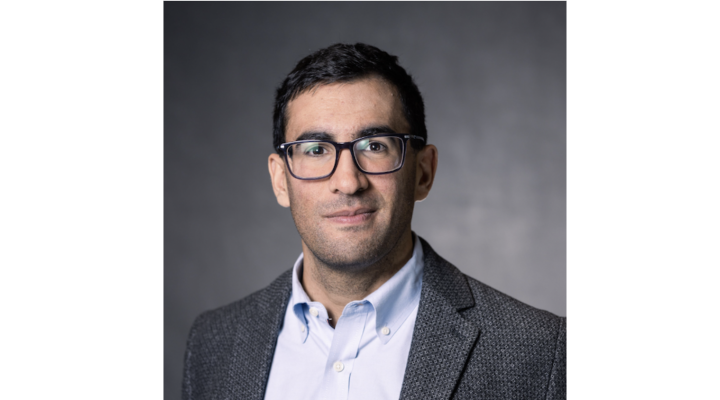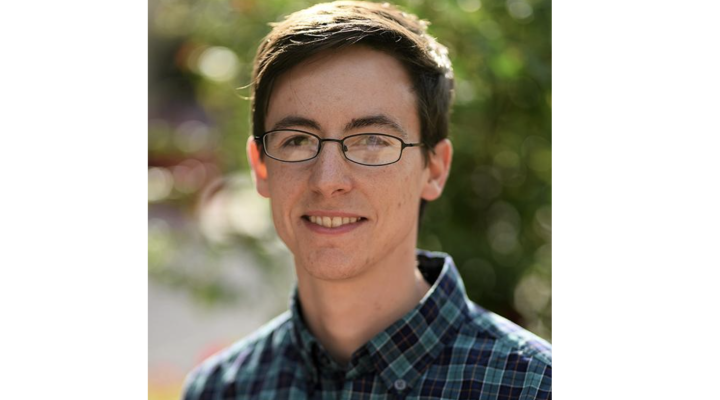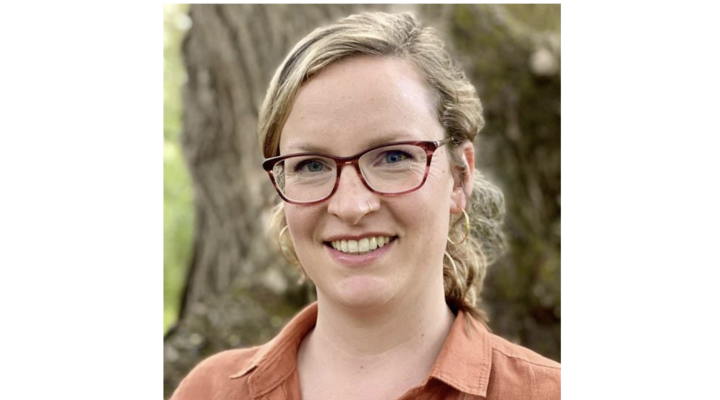The last time Ludmilla Aristilde was at Cornell, she was an undergrad--a fact that seems slightly surreal to her. “There’s still very much a part of me that is this little girl from Haiti,” says Aristilde. That little girl has since overcome chaos and strife in her homeland, traveled great distances, and fully embraced both the sciences and the arts--bringing her to the Department of Biological and Environmental Engineering, where she studies the biochemical interactions of natural toxins and man-made contaminants, and their effects on the environment--“the mechanisms of why it happens, and how it happens.”
As an undergrad, Aristilde was eager to take advantage of everything Cornell had to offer. She embarked on a 5-year dual degree program in fine arts and engineering, juggling 6-hour-a-week art studio classes with mathematical problem sets. But instead of driving her crazy, the two responsibilities kept her sane. “After completing a heavy math or physics problem, I could go into the studio and create,” says Aristilde. “I just loved to isolate myself in my art.” As an artist, Aristilde loved to paint and do photography; her senior art thesis comprised a series of abstract self-portraits and a book she wrote detailing her life in Haiti as a child.
Despite her deep love of art, Aristilde chose to focus on science as a career. Driven by her first-hand experiences with cholera outbreaks and rampant deforestation in her native Haiti, Aristilde leveraged her knack for science and engineering to study and solve real-world issues. Her first effort took place in Hyderabad India, where she did a summer research internship on groundwater pollution and its effects on nearby villages. After graduating from Cornell, Aristilde went to do a Ph.D. at the University of California-Berkeley, where she studied the effects and mechanisms of livestock antibiotics in water and soil. These pharmaceuticals, which are routinely put in livestock feed to prevent infections, often go straight through the animals’ systems and into the environment. While the issue is a hot topic today, Aristilde started tackling it when there were only few papers in the field. She studied the delayed degradation of antibiotics when bound to soil particles. She also analyzed how ciprofloxacin (Cipro), a common human antibiotic, impedes photosynthesis in algae, and may affect algal biodiversity. “I found that there was a photosynthetic target that may compete with the photosynthetic process and slow the growth of plants under high concentrations of antibiotics,” a finding that was picked up and reported on by the Discovery News channel.
After garnering a Fulbright scholarship in Grenoble, France to learn different spectroscopic techniques, and conducting two post-docs at Princeton that focused on how organic compounds are utilized by phytoplankton and anaerobic bacteria, Aristilde was recruited to return to Cornell. Here, she is continuing to look at the effects of man-made contaminants on the natural world and the behavior of natural toxins and organic matter in the environment. For examples, how herbicides affect soil bacteria, how cyanotoxins, the potentially poisonous substance produced by blue-green algae, may get trapped in particles in surface waters and sediments, and the carbon metabolism in soil bacteria with relevance to climate change. “With warming temperatures, you’re going to have more exposed soils that were previously under ice, and you will have higher amounts of bacterial respiration of organic matter, which can lead to higher amounts of carbon dioxide,” says Aristilde. “So I’m figuring out the dynamics of the biochemical drivers behind that.”
As a Cornell professor, Aristilde is now colleagues with some of the people who once taught her, and teaches a class that was one of her favorites as an undergrad. The career success “psyches her out” if she thinks on it for too long. “For me, when I think about what I grew up in, the chaos in Haiti that I suffered through, it’s just kind of surreal. So I don’t think about the fact that I am a Cornell professor too much,” she says. “I just come to work, and focus on the fact that I am doing what I love.”




